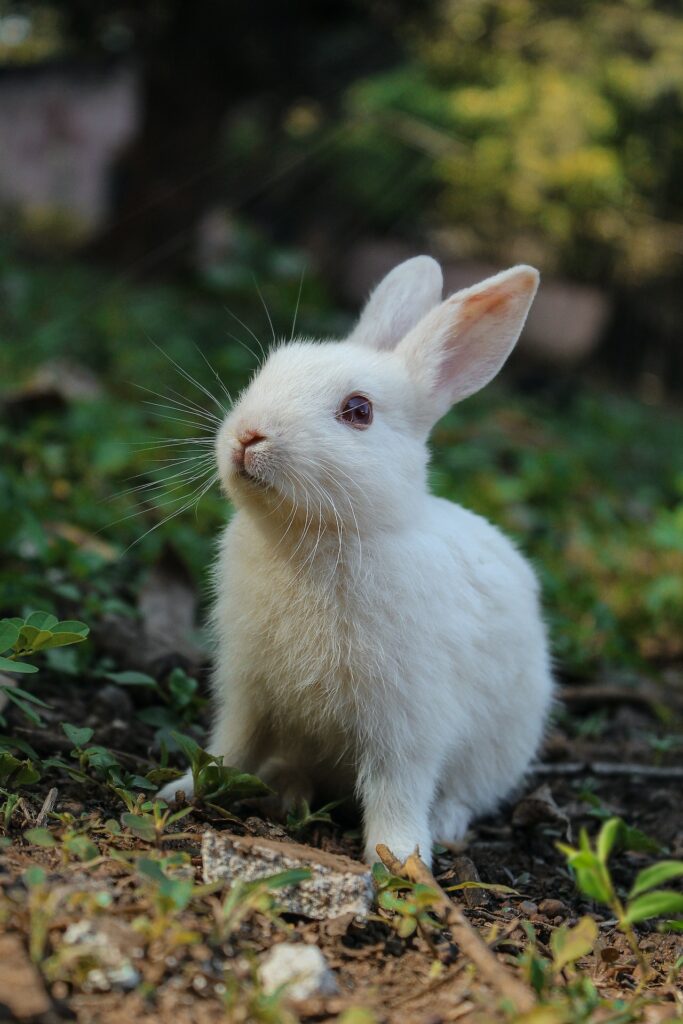How to Manage Aggressive Rabbit Behavior: Warning Signs, Triggers & Prevention
Are you worried about your rabbit’s aggressive behaviour? Do you want to learn how to prevent and handle it safely and effectively? If so, then this article is for you. Here, we’ll discuss the warning signs of aggression in rabbits, common triggers, prevention strategies and ways to handle an aggressive rabbit in a calm manner that will help restore trust between you and your beloved companion. So read on if you would like to gain valuable insight into managing aggression in rabbits!
Rabbit Aggressive: Understanding and Dealing With Rabbit Behavior
Rabbits are among the most beloved animals in many households. They may be small, but they can show a range of behaviours, including aggression. Understanding why rabbits display aggressive behaviour is important for anyone who owns or cares for them.
What Causes Rabbit Aggression?
Rabbits can become aggressive when they feel threatened or intimidated, so it’s important to understand why they may display this behaviour. There are several potential causes of rabbit aggression that owners should know about:
1. Fear
Rabbits may become aggressive if they feel scared or threatened by something in their environment. This could be another animal, loud noises, sudden movements, or other people. It’s important to remember that rabbits have empathetic hearing and can easily become startled if something changes too quickly in their environment.
2. Territoriality
Rabbits are territorial animals and may become aggressive when another animal or person invades their space. They may also exhibit defensive behaviour if someone gets too close to their food or water sources.
3. Lack of Socialization
If a rabbit wasn’t socialized properly as a young animal, it could be more likely to display aggressive behaviours around other animals and people. Socializing your rabbit early on can help reduce the chances of them becoming aggressive.
4. Medical Issues
In some cases, rabbits may become more aggressive than usual due to medical issues such as pain from an injury or illness. If you notice any changes in your rabbit’s behaviour, you should take them to a vet as soon as possible for a check-up and treatment if needed.
Symptoms of Rabbit Aggression
It’s important to be aware of the signs that indicate your rabbit is feeling anxious or angry:
1) Flattening ears against their head
When rabbits flatten their ears against their head, it usually means they are feeling threatened or scared by something in their environment
2) Growling/teeth chattering
Rabbits typically produce low growls when they are feeling agitated and may even chatter their teeth if they feel particularly threatened
3) Lunging/charging/jumping
If a rabbit feels especially threatened, it may lunge at whoever is making them feel that way
4) Biting
Biting is an extreme form of aggression that rabbits might use when all else fails
5) Fur standing up
When alarmed, rabbits will often fluff up their fur and make themselves appear larger than usual
6) Keeping away from people/animals
If your rabbit feels uncomfortable with someone nearby (or another animal), it might move away from them slowly to distance itself from the source of its discomfort.
Dealing With Rabbit Aggression
Once you have identified the cause of your rabbit’s aggression, it’s time to start dealing with it properly:
1) Give your rabbit plenty of space
The best way to combat territoriality is by giving your bunny enough room in its cage or living area so that it doesn’t feel crowded by other animals (or people). Make sure there are enough hiding spots, too, so your bunny feels safe while exploring different parts of its environment
2) Avoid loud noises/quick movements
As previously mentioned, loud noises and quick movements can easily startle a rabbit so try not to make either around them.
3) Offer positive reinforcement
Rewarding good behaviour with treats (like vegetables!) will help encourage positive habits instead
4) Consult a veterinarian
If you suspect, there could be underlying medical issues causing your bunny’s aggression, then take them for a check-up with an experienced vet
5) Seek professional advice
In more extreme cases, you might find yourself needing some extra help from an animal care professional to deal with serious behavioural problems
6) Get help from other pet owners
Talk with other pet owners who have experience handling similar behavioural issues with their pets—they might have tips on how best to deal with yours!
Wrap Up
Aggression in rabbits can be scary and difficult to deal with, but understanding the underlying causes and taking the proper steps to address them will help keep you and your beloved companion safe. Always remain calm when handling an aggressive rabbit, as this will help restore trust between you and your pet.
If you’re concerned about the aggressive behaviours of your rabbit, then it’s important to ensure that they are properly protected and cared for. At Furrr.co.uk, we offer pet insurance policies specifically designed for rabbits so that you can know that your furry friend is covered should anything happen.










